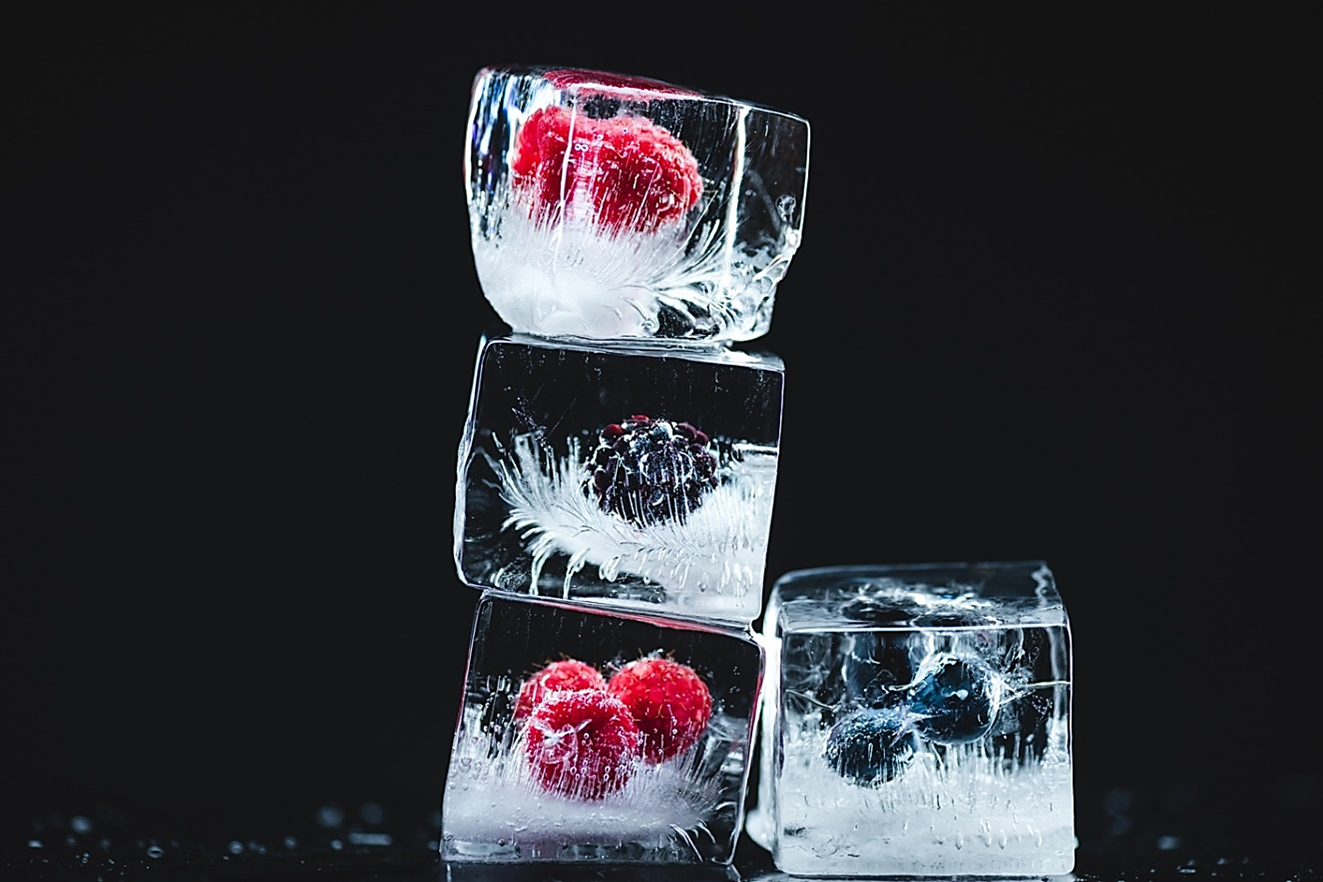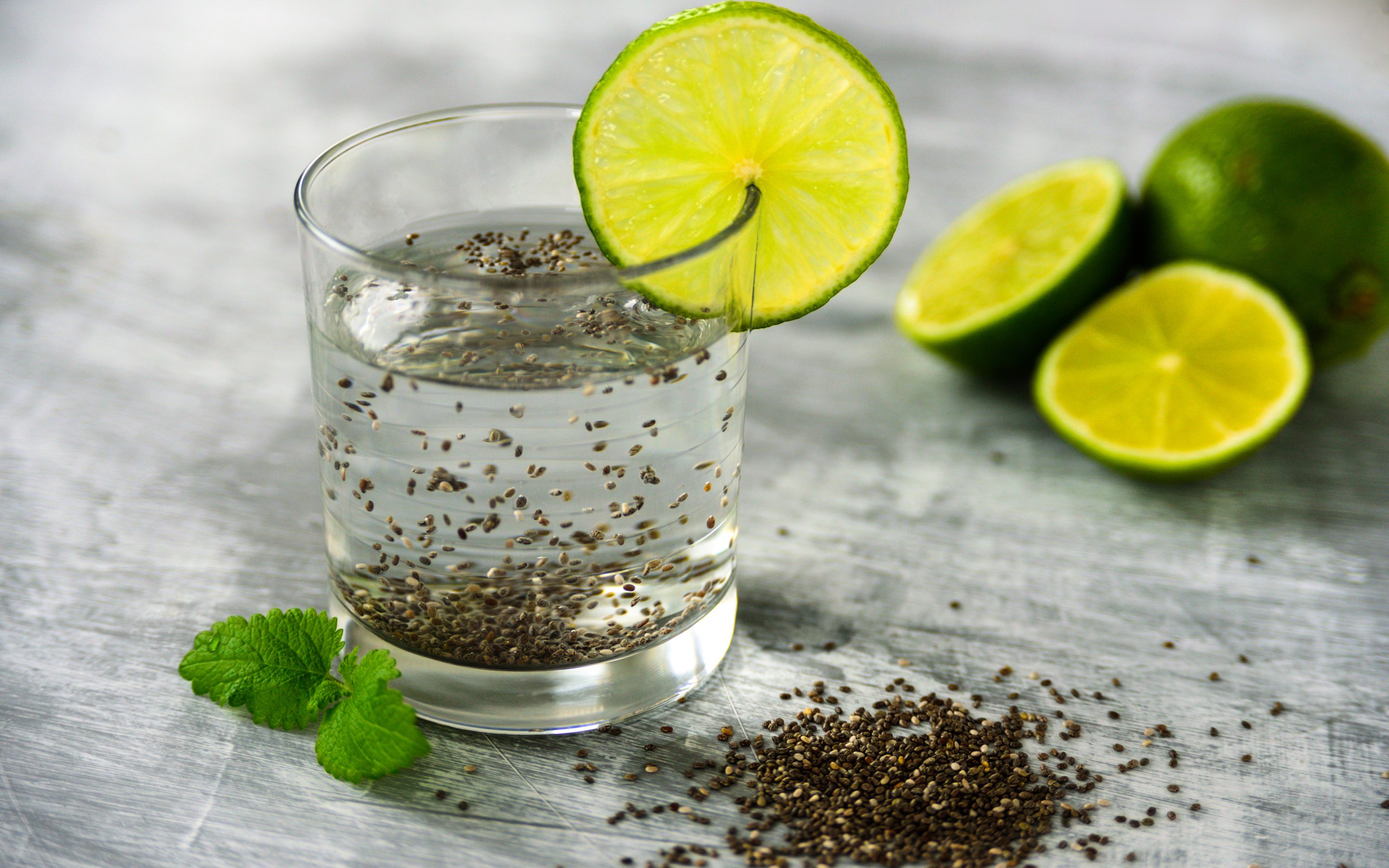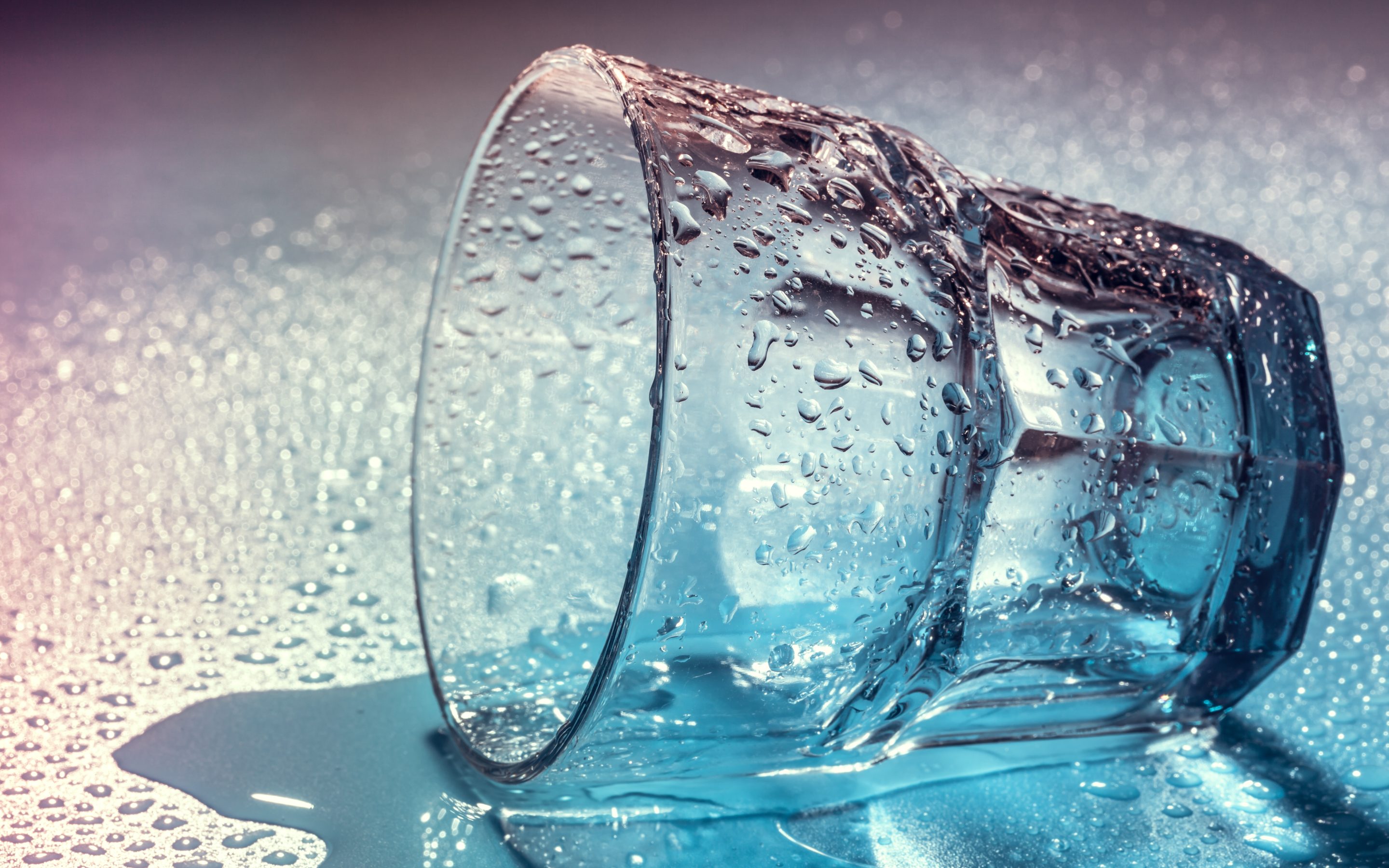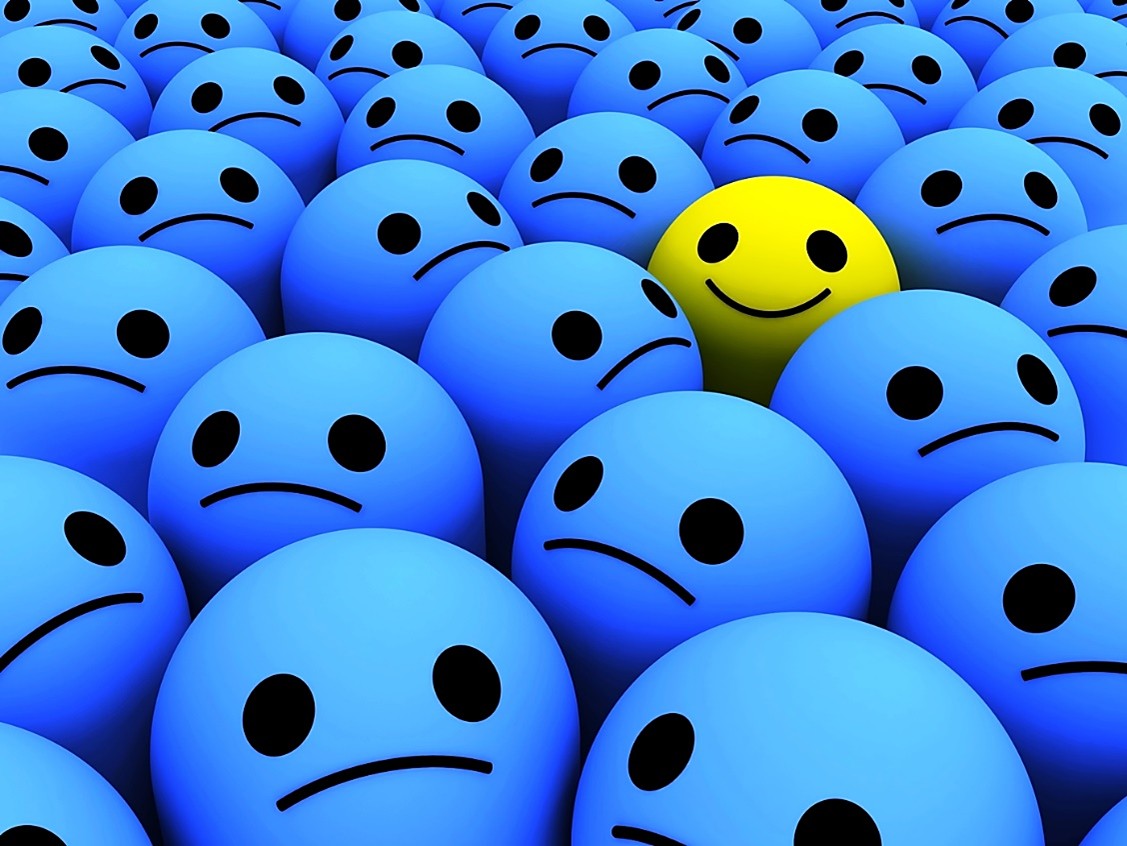
by Fern Shaw | Jul 30, 2025 | water cooler, Water Coolers
As a blogista, one would imagine that I love the internet or the worldwide web. You’d be right. It’s packed to capacity with the most incredible information and makes research interesting, amusing, at times alarming and can turn one into a sniffer dog that any contraband sniffing beagle would envy – (all those leads!)
Some time ago, I read one of what I call, Snopes-worthy-at-a-glance chain *shudder* mails. Recently, while researching, I came across another take on the ice-cold water debate, one I hadn’t heard of before.
The First Drinking Ice Water Theory I read is that if you are all hot and bothered and need to cool down, instead of chug-a-lugging litres of brain freezingly cold water, you should rather drink room temperature water (which is disingenuous, because what if your ‘room’ at the time is an Arctic wasteland? Hmf!). The reason for this is that your body works hard to regulate your ‘core’ temperature. Picture the scene:
You’ve just vaulted up two flights of stairs wearing your spencer and Ugg boots. You get to the landing, leopard crawl down the corridor, reach your water dispenser station, roll onto your back underneath the water cooler, open the tap, a steady stream of water from source pouring refreshingly down your gullet. Now your body is hot. The water is cold. So, whereas you are hydrating your body, which is what your body is asking for, your body now must work double time to ‘heat up’ the water to your core temperature, which is baaad. Or so the chain mail said. I am, (of course), paraphrasing (a lot). I think, for this next one, I don’t have to draw a scenario for you.
The Second Drinking Ice Water Theory is just plain funny – ha ha and peculiar. According to this zinger and I’m quoting, “Drinking Ice Water after a meal … will solidify the oily stuff that you have just consumed. Once this ‘sludge’ reacts with the acid, it will break down and be absorbed by the intestine faster than the solid food.”
Anyhow, so of the two, which is absolute Hogwarts (sorry!) hogwash and which, if any, of the two, have an element of truth in them? I believe the answer to both is a ‘what’s good for you coupled with common sense’ thought process.
Personally I tend to believe the first theory – if our bodies are ‘normally’ at about 37C° and you’ve exerted yourself which means that your body temperature us higher; then with ice water being around 0C°, it would make sense that your body has to work harder to regulate the temperature of the cold water to, rather ironically, cool you down.
So, on this, I’d suggest that if you do decide to Rocky it up the stairs, dressed like Bradley Cooper in The Silver Linings Playbook, for reasons known only to you; by all means perch next to the water cooler, just don’t guzzle. Pour yourself a cup of cool water and drink it slowly.
As for the ‘sludge’ that ice water turns ‘the oily stuff’ into theory, I truly, for once, don’t have a comeback for this marvel of silly.
Keen on having chilled, cool, ambient temperature or even piping hot water available immediately? You need look no further than the UK’s leading water cooler supplier: AquAid. You’re welcome. Drink up!

by Fern Shaw | Jul 30, 2025 | Health and Hydration, water cooler, Water Coolers
Staying properly hydrated ensures that all of your bodily functions are … well … functioning. You can only go three days or so without water, and as your body loses its hydration, you will experience all kinds of awful side effects. Dehydration can cause irritability, lethargy, dangerously low blood pressure, rapid heart rate, headaches, shock, and even death.
The average adult can usually maintain proper levels of hydration by drinking enough water. That being said, extreme heat or exertion can be draining on even a healthy adult. Kids and the elderly are more susceptible to extreme dehydration than the average adult … so if you have kids or older adults in your life that are important to you, the tips outlined below can be especially important for them (and for you!)
- Pick the right water.
As a general rule, try to avoid hydrating beverages that have added sugar. In addition to having fewer calories, it’s important to choose hydrating beverages that don’t have sugar in order to prevent spikes in insulin levels. Going into a sugar crash compounded with the already-unpleasant sensation of dehydration is not the way to go. Plus, if you happen to be sick with diarrhoea during a hot summer day, sugary beverages can actually worsen your symptoms.
- Snack on the right foods.
Fresh veggies and fruits are good snacks this time of year, and not just for dieters. Fresh produce has a very high water content, so it’s a great way to hydrate without having to drink a ton of water. For example, an apple is up to 85% of water by volume.
Pickles (and pickle juice) are higher in electrolytes than beverages like Liquid Power or Powerade, and have been shown to reduce cramping cause by exertion in high temperatures. The acetic acid in pickles and pickle juice are considered superior to the citric acid found in commercial sports drinks, at least when it comes to rehydration properties.
Another food you should add into your diet when staying properly hydrated is a concern are chia seeds. In addition to being high in protein, the seeds themselves help you to retain water by absorbing many times their own weight in water. If you can’t find the actual seeds, you may be able to find a chia seed gel at runner’s/sporting goods or health food shops.
- Drink constantly, not occasionally.
You should be constantly drinking fluids, rather than guzzling multiple litres of water all at once.
Another way to explain this (in a rather radical comparison) is when you go to the hospital and get an IV drip, it’s a DRIP … meaning that you get a slow but steady introduction of fluids. You never see anyone getting an IV drip at the speed of a gushing fire hose.
It is better to have frequent, small amounts of fluid … especially if the dehydration is severe. Too many fluids at once can induce stomach upset or vomiting.
The amount of water you need in a given day depends on the environment, your activity level, and what other food and drink you have consumed.
Break up that amount of water into a cup or so every hour, and you’ll have a good, healthy intake of water. Drinking too much water in a very short period of time can put too much strain on your eliminatory processes, so finding the right balance is important.
- Avoid diuretic behaviours.
Don’t do anything that you know will dehydrate you. In addition to exercise, also watch out for alcohol and caffeine. You might feel groggy when you get to the office … avoid your usual The Hulk sized mugs of coffee and go for a large glass of water. You might be surprised at how much more effectively the water perks you up.
- Make it easy on yourself.
It’s hard to stay hydrated when you don’t have water nearby. At the office it should be easier – and practically impossible to avoid if you have a water cooler on the premises.
If you don’t, speak to the powers-that-be and ask them to drop AquAid a line, so that you get your water cooler tout suite.
Chia!

by Belinda Ollewagen | Jul 30, 2025 | Hot Water Taps, instant tap, Water Coolers
We all know that dehydration is bad for us and that it’s important to keep ourselves well hydrated throughout the day to ensure we perform optimally, which (in addition to it being the law) is another reason why companies provide easy access to water in the form of a water cooler, water boilers, and hot water taps. But many of us still don’t drink enough water, and even slight dehydration is harmful. Our bodies naturally alert us when they need replenishment, but thirst mechanism aside, what are the other cues we often misread?
Some of the first signs of dehydration are similar to hunger pangs, which mistakenly makes us reach for something to eat. The confusion apparently stems from our hypothalamus, that part of the brain that regulates appetite and thirst – which, when we’re dehydrated, gets its wires crossed. It’s always best if you’re feeling slightly hungry to try drinking water first, if hunger pangs persist then move on to a snack, but always try replenishing the body’s water supply before doing anything else.
A more obvious sign is a dry mouth, potentially followed by a headache – the latter is not something we would normally associate with dehydration, but unwittingly it is often the cause. According to University News‘ dehydration headaches may happen because a lack of fluids causes shrinkage in brain volume. This results in the brain pulling away from the skull, which triggers pain receptors in the meninges (the membrane that surrounds the brain).’ So, before you reach for pain killers, walk over to the hot water taps in your office kitchen and make a cup of tea or drink a glass of water. An important point to remember however is that while drinking coffee and tea will aid hydration, it is only effective around the four cups per day mark – if consumption exceeds that, it actually becomes a diuretic which is counterproductive to hydration.
Other more serious signs can include fatigue, heart palpitations, cramping, loss of concentration and loss of mental capabilities. It is particularly the change in focus and shift in mental acuity that affects productivity. A study assessing the effects of mild dehydration on cognitive performance found that ‘mild dehydration in men induced adverse changes in vigilance and working memory, and increased tension/anxiety and fatigue.’ Worryingly, many of us begin our day already mildly dehydrated which is then exacerbated by a lack of water intake as we move through our day.
It is imperative, both from a health and productivity point of view, that we maintain sufficient hydration levels, and we achieve this by forming healthy habits – keeping a bottle of water on our desks and sipping on it throughout the day; and taking regular water and tea breaks. Mild dehydration is insidious and if we are to function optimally, we need to learn to read the signs correctly.

by Fern Shaw | Jul 21, 2025 | water cooler, Water Coolers
It’s quite fitting – smack‑dab in the middle of summer, when hot weather makes easy access to refreshing water more vital than ever – that we have some incredible news to share.
As of June, thanks to the dedication and hard work of everyone at AquAid – and the fantastic support from our amazing customers – we have officially surpassed the milestone of over £23 million donated to charity.
AquAid, as one of the UK’s leading water dispensers and bottled‑water suppliers, serving more than 40,000 customers, could not have reached this landmark without you.
But the real value here is that figures only tell half the story. Here are a few examples of what that £23 million has achieved:
- 2 million people across thousands of communities now have safe, reliable source of water for drinking and productive use.
- Gravity‑fed pipelines in Tanzania, funded by AquAid and installed by our partner charities, supply clean water to tens of thousands.
- Irrigation systems and pump‑upgraded wells in Ethiopia and Malawi that help boost food security. These upgraded methods of irrigation and access to water resources save time, energy and effort when producing food for consumption and crops for markets.
- Over 10,000 Elephant Pumps built in Liberia, Mozambique, Zimbabwe and beyond, easy to repair locally and serving millions.
Every project we have supported continues to deliver a sustainable water resource for decades. We could not be prouder, nor more grateful, to everyone at AquAid, for the tireless efforts of the charities we support and to our customers for making this possible.
Here’s to staying refreshed, replenishing your water at your AquAid water coolers and making a lasting difference – together.

by Fern Shaw | Jul 2, 2025 | water cooler, Water Coolers, water dispenser
It’s more important than ever to stay on top of your hydration during a heatwave. Hot weather puts extra strain on our bodies and even mild dehydration can quickly leave you feeling sluggish, dizzy or unwell. The simple fix? Up your water intake – stat!
It’s easy to underestimate how much you need to drink, especially if you’re not moving much or don’t feel thirsty. But good hydration habits aren’t just about comfort; they’re about staying well. Keep a bottle of water nearby, remember to refill your water glass and visit your water dispenser often and try to balance teas, coffees or fizzy drinks with extra water too. If you’re sweating more than usual, consider drinks that contain electrolytes to help replenish what’s lost.
But it’s not just about us. Heat affects everyone – so take a moment to check in on children, older relatives or neighbours and those with health conditions who might struggle in the heat. A quick call, a glass of water, a bit of shade – small things can make a big difference.
And don’t forget the animals. Pets can overheat fast and need cool, shaded and well-ventilated spaces and fresh water at all times. Wildlife, too, needs a hand. A shallow dish of water left out for birds, bees, hedgehogs or even a passing deer can be lifesaving.
In short, stay cool, drink water often, and look out for one another – human or otherwise.

by Fern Shaw | Jun 30, 2025 | water cooler, Water Coolers
When the temperature climbs, the reminders to ‘drink more water’ seem to come from everywhere – and for good reason. Hydration is key to keeping our bodies running smoothly. But there’s more to it than just avoiding dehydration.
Here’s why staying sensibly hydrated matters – and what many people may not realise.
Hydration Helps More Than Just Thirst
We know dehydration can cause fatigue, headaches, dizziness and more. But here are a few lesser-known reasons to stay on top of your water intake:
- Joint protection: Water keeps the cartilage in your joints cushioned and functioning properly. Less water = more friction = more aches.
- Digestive support: Dehydration can slow digestion, leading to bloating and constipation.
- Body temperature regulation: Hydration helps your body cool itself – especially important during heatwaves or exercise.
But Can You Drink Too Much Water?
You can and it’s more common than people think, especially in the summer when we’re hyper-aware of the heat. Overhydration can happen when you drink excessive water without replenishing vital electrolytes like sodium and potassium.
These minerals help your body:
- Hold onto the water it needs.
- Maintain the right balance between fluids inside and outside your cells.
Without them, your body may flush too much sodium, which can lead to symptoms like nausea, confusion and headaches.
So, What’s Sensible Hydration?
- Sip steadily throughout the day, not all at once.
- Eat electrolyte-rich foods like bananas, avocados, potatoes, leafy greens and melon.
- If you sweat a lot (exercise, outdoor work, or naturally heavy perspiration), consider electrolyte supplements or drinks that contain electrolytes to help maintain fluid balance.
- Don’t force litres of water if you’re not thirsty – your body knows what it needs.
Hydration is vital, but like most things, it’s about balance, not extremes. So, when it gets hot, keep your cool, top up your water bottle as needed, be kind and remind your workmates to visit the water cooler station and drink up … but drink smart.
sources overhydration: from an article at UCLA Health






